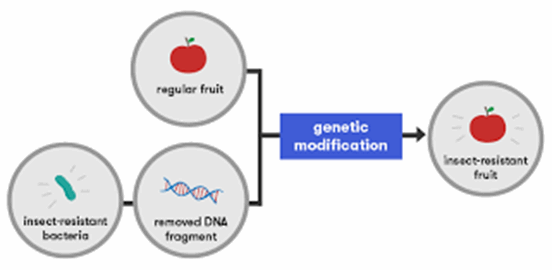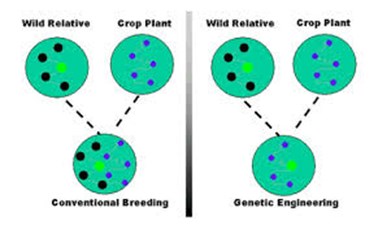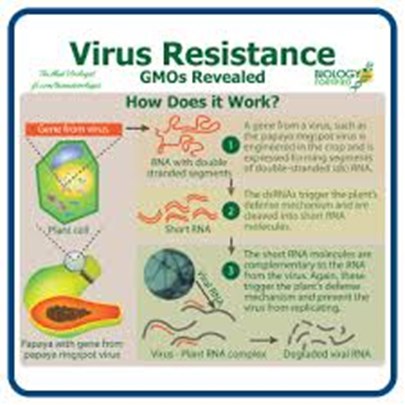
GM in short is for Genetic Modified. For reducing crop losses and enhanced input use efficiency and the inbuilt genetic resistance to various crops is the new way of thinking for developing future crops.
Genetic Engineering is a powerful' tool for developing future crops but before it is used for food, questions on its safety should be addressed and settled at the earliest, a high-powered official panel has recommended.

Research on GM crops should be done in a more transparent and socially inclusive manner, for wider public acceptance. Concerns of the opponents of GM technology should be addressed, to allay the concerns on food safety, environmental and economic security.
"GM (genetic modification) technology is a powerful tool for developing future crop varieties, with in-built genetic resistance to various biotic and abiotic stresses for reducing crop losses and enhanced input use efficiency, yield potential and quality traits. Their use will be crucial for food and nutritional security of the country and, therefore, research on these must be continued, with the aim of developing safer, more productive and nutritious food crops," the panel on doubling of farmers' income has said.

The Genetic Engineering Appraisal Committee (GEAC) had in 2017 approved commercial release of GM mustard but a decision was put on hold due to strong opposition.
The panel issued its latest report on Thursday. Which says use of GM cotton in India has provided important learnings, both pros and cons, including the use of genetic engineering to mitigate crop-specific and location-specific problems or challenges in non-food crops.
The panel said in the absence of transgenic technology, the world might have had to find an additional 100 million hectares of cultivable land to meet the increased demand for agricultural commodities.

The panel has stressed that safety concerns on the issue must be respected. And, the ethical, social and environmental consequences of GM technology that alter the genetic code must be understood thoroughly before widespread application in agriculture
Chander Mohan
Krishi Jagran/New Delhi










